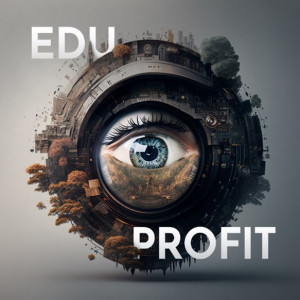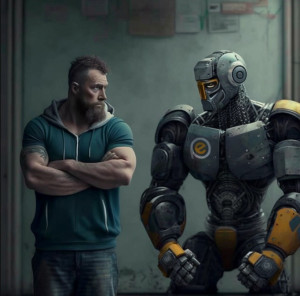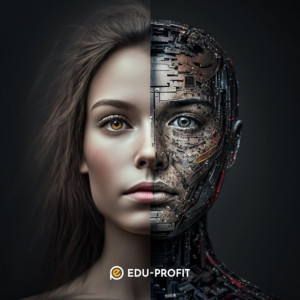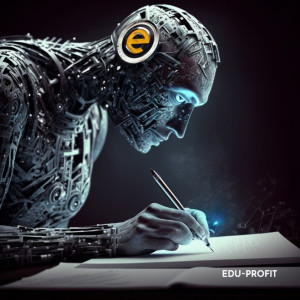On ChatGPT: What’s Going On & What We Are Doing to Deal with It
 The arrival of ChatGPT raised concerns about how AI-based content generators will impact the custom writing industry. In our assessment, due to the peculiarities and limitations of AI technology, the effects will be most tangible within the creative domain, while academic writing will remain a human responsibility. The main reason here is that existing and prospective AI writing tools cannot fully satisfy students’ needs, primarily making their lives easier and saving time. Automatically created texts lack crucial academic writing features and require a lot of time to be brought in line with strict academic writing standards. Our company keeps tabs on the developments in the field and is already implementing new approaches to stay on top of the current and perspective shifts in the industry. We will keep you updated about the steps we’re taking to explore new business opportunities and expand to newly-formed niches.
The arrival of ChatGPT raised concerns about how AI-based content generators will impact the custom writing industry. In our assessment, due to the peculiarities and limitations of AI technology, the effects will be most tangible within the creative domain, while academic writing will remain a human responsibility. The main reason here is that existing and prospective AI writing tools cannot fully satisfy students’ needs, primarily making their lives easier and saving time. Automatically created texts lack crucial academic writing features and require a lot of time to be brought in line with strict academic writing standards. Our company keeps tabs on the developments in the field and is already implementing new approaches to stay on top of the current and perspective shifts in the industry. We will keep you updated about the steps we’re taking to explore new business opportunities and expand to newly-formed niches.
Dear Partners,
This memo addresses concerns regarding the potential risks that ChatGPT and similar tools pose to the custom writing industry. While we understand your worries, we’d like to explain how AI-based writing is anticipated to affect our common cause and what we are doing to deal with this challenge.
What Is Artificial Intelligence and ChatGPT Anyway?
Yet, first things first – what are artificial intelligence and ChatGPT in the context of content creation?
 In simple terms, artificial intelligence is a technology that enables computers to do things that traditionally require human intelligence. Typically, this goal is achieved through AI processing large amounts of data in ways that humans cannot.
In simple terms, artificial intelligence is a technology that enables computers to do things that traditionally require human intelligence. Typically, this goal is achieved through AI processing large amounts of data in ways that humans cannot.
For those of you who have been living under a rock lately, AI has been a burning issue for about the last decade. New advancements in the field – minor and more significant – were a regular occurrence in multiple industries (e.g., customer support, coding assistance, design, etc.), with large language models being the latest hit.
The loudest premier by now came at the end of 2022 when the OpenAI company launched GPT (generative pre-trained transformer) – a program that can realistically write like a human. It was conveniently shaped as an online chat that uses artificial intelligence to generate on-the-fly responses to text-based queries after being trained on a vast amount of data, such as books, articles, and websites. As a result, it understands the patterns and relationships between words and phrases and can provide meaningful answers to questions, find and furnish the required data, suggest ideas based on compiling information from various sources, etc. Simply put, ChatGPT is a robot that has read a gazillion books and articles and can now tell you almost everything, much like a nerd friend back in the 5th grade.
What’s most important to us, ChatGPT became an instant hit among students who started using it to deal with their homework assignments and writing tasks. Many educators say that this tool will significantly affect the appearance of academic writing as such. There are also worries that the ChatGPT arrival jeopardizes the custom writing industry, as students can just generate the required papers and submit them as their own instead of ordering a piece crafted by a professional writer. Having thoroughly analyzed the technology and expert feedback, we can confidently tell that, while it will impact the custom writing industry to a certain extent, the domain of academic writing will still strive.
AI Is a Great Tool for Writing. But Not for ACADEMIC Writing
AI-based content-generation tools are amazing – no arguing about that. They can provide concise yet comprehensive answers to virtually any questions by compiling information from various sources. They can instantly create short-form texts for social media or news outlets. They can solve simple and complex STEM tasks. They can offer detailed manuals and step-by-step instructions on what to do to achieve the desired result. Finally, they can put together a vivid creative writing piece or a fiction story styled after, for example, Ernest Hemmingway or Alice Walker.
 But what about academic writing? Well, it’s not that simple after all. The thing is, an academic work isn’t just well-written content. First of all, it is a subject-specific text that must be crafted in strict compliance with specific writing standards. It must be accurately formatted according to an appropriate style, often significantly different depending on the discipline. It must use suitable methods and structure. It may require using primary sources only available in printed form. And most importantly, it has to contain new ideas, personal experience, or the results of actually conducted experiments. In other words, academic writing requires doing many inherently human things.
But what about academic writing? Well, it’s not that simple after all. The thing is, an academic work isn’t just well-written content. First of all, it is a subject-specific text that must be crafted in strict compliance with specific writing standards. It must be accurately formatted according to an appropriate style, often significantly different depending on the discipline. It must use suitable methods and structure. It may require using primary sources only available in printed form. And most importantly, it has to contain new ideas, personal experience, or the results of actually conducted experiments. In other words, academic writing requires doing many inherently human things.
Can even the most sophisticated AI text generator do what a human academic writer is expected to do while the best of us might struggle with such a complicated task? Only partially, at best.
- It can quickly put words one after another, but it cannot understand the specific requirements of academic prompts.
- It can churn out thousands of words without a single mistake, but it cannot get a single piece of evidence from ‘physical’ academic sources.
- It can almost provide an answer to virtually any question, but it can hardly differentiate fiction or fake from rock-solid fact and routinely produces biased or harmful content.
- It can almost instantly process gigabytes of data, but it cannot offer original and innovative ideas.
Perhaps, these drawbacks are the reason why Sam Altman, the OpenAI cofounder and CEO, admits that ChatGPT is a “horrible product […] no one would say this was like a great, well-integrated product yet.” Well, maybe, it’s not all that horrible, but it definitely isn’t good enough for high-quality academic writing.
AI Tools Cannot Completely Satisfy Students’ Needs – And Here’s Why
Our internal data shows that the two main reasons why students address our custom writing service are the lack of time to complete assignments single-handedly and the desire to make their lives easier. Do AI content generation tools satisfy these needs? Let’s see.
 Typically, once a student generates a text for an essay, report, research paper, or another piece of academic writing, they still need to refine it to comply with academic writing standards in general and assignment-specific requirements in particular.
Typically, once a student generates a text for an essay, report, research paper, or another piece of academic writing, they still need to refine it to comply with academic writing standards in general and assignment-specific requirements in particular.
Plus, students will need to manually adjust the originally generated text to prevent it from being detected and red-flagged as produced by a machine. The thing is, educational institutions across the country proactively use specialized AI-generated content detection tools (e.g., GPTZero, AI content detector by Corrector App and Writer, even OpenAI has its own AI Text Classifier). Yes, there are AI-based tools on the market that can produce practically undetectable content. However, they are paid, and even they cannot work with physical sources, understand context, and guarantee accurate citation.
Finally, students might need to rework the content to add the depth and breadth of research required for high-quality writing. The fact is, due to the peculiarities and limitations of the technology, AI-generated content is often visibly shallow.
As a result, students will still need to put lots of effort into turning an AI-generated text into a high-quality piece of academic writing. This requires time and sometimes money and can hardly be considered life-easing, does it? How do you think – is it at all close to what students are looking for when they have been addressing our custom writing service for years? Does it make sense for them to waste more time and effort when they can get an entirely original, perfectly sourced, and flawlessly formatted academic paper from a field expert?
The bottom line here is that we solve students’ core issues while AI-based content generators don’t, whether it is ChatGPT or Jasper or Rytr, or any other for that matter.
What to Expect and How We Are Reacting to the Challenge
It would be irresponsible to ignore the challenges ChatGPT and similar products pose to the custom writing industry. We understand that and hereby explain what we expect and how we are reacting.
For starters, we expect the structure of orders to partially change. For instance, the number of orders for the most simple assignments will decline, as they will be obviously done by AI assistants. On the other hand, we might process a higher number of large and complex orders, as, hypothetically, schools will assign them more often because they are harder to shift to AI. We are already working on hiring new professionals and improving the skills of existing staff.
We also predict that many students will address services like ours for further content editing by professional writers. Why so? Because they will still need help bringing these texts in line with academic writing standards and specific assignment prompts, as well as refining them in order to avoid AI-content detection. To stay on top of the trend and win over this market share, we will add the respective service to our scope. Students will be able to order raw AI-generated text editing or hire an expert who will complete an assignment for them using AI – for a lower price, of course
Also, we are assessing, and in some cases already implementing, some features the AI technology offers to optimize customer service, communication, and order processing.
 Ultimately, we see no reason to claim that the custom writing industry is going into decline. We believe it is going through metempsychosis, causing the entire market framework to change. This shift creates new opportunities and significant room for the development of the custom writing industry. We anticipate the emergence of new products and services, hence creating new sub-niches with lower competition and higher profits. On the one hand, we will focus on finding the best ways to work the situation to our mutual advantage. On the other hand, we will closely monitor developments in AI-writing technology, market trends, and relevant news to keep you updated about all the changes in the industry and their possible impacts on what we do together.
Ultimately, we see no reason to claim that the custom writing industry is going into decline. We believe it is going through metempsychosis, causing the entire market framework to change. This shift creates new opportunities and significant room for the development of the custom writing industry. We anticipate the emergence of new products and services, hence creating new sub-niches with lower competition and higher profits. On the one hand, we will focus on finding the best ways to work the situation to our mutual advantage. On the other hand, we will closely monitor developments in AI-writing technology, market trends, and relevant news to keep you updated about all the changes in the industry and their possible impacts on what we do together.
Thank you for your attention, and please do not hesitate to contact us if you have any further questions or concerns.
Best,
The EDU Profit Team
 Вернуться к статьям
Вернуться к статьям









 Вернуться назад
Вернуться назад